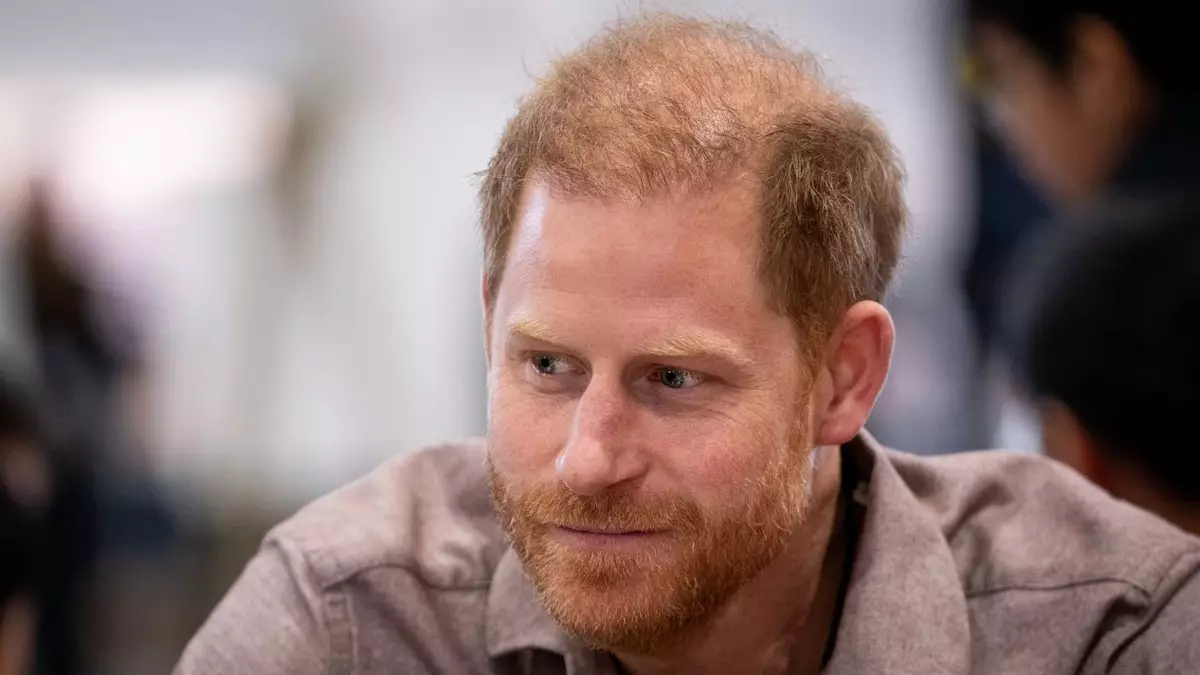Prince Harry’s recent visit to Ukraine stands as a powerful testament to his unwavering commitment to supporting wounded veterans across the globe. With an unannounced arrival in Lviv, the Duke of Sussex took a courageous step to engage with servicepeople who have endured profound trauma as a result of ongoing conflicts. This trip signals a blend of personal commitment and public duty, showcasing a philanthropic approach that transcends mere celebrity engagement. It emphasizes the significance of genuine connections, particularly in times of strife.
While Harry’s motivation can be dissected through various lenses—personal, humanitarian, or even political—the crux of this visit lies in its impact. Meeting injured service personnel at the Superhumans Center, an orthopedic clinic dedicated to rehabilitation, he embodied solidarity that reverberated well beyond the walls of the facility. The services offered there, from reconstructive surgery to essential psychological support, provide not just healing but also a lifeline for those who have sacrificed so much for their country.
A Message of Support and Solidarity
During his interactions, Harry was not merely a figurehead; rather, he engaged in meaningful dialogues that can educate and inform the necessary evolution of rehabilitative practices worldwide. Olga Rudneva, the CEO of the Superhumans Center, aptly highlighted this through her sentiments post-visit. By gifting Harry a T-shirt and bracelet emblazoned with the phrase, “Whoever saves one life saves the world,” she underscored the philosophical underpinnings of their work. It is a clarion call that resonates strongly with Harry’s broader mission of fostering awareness and providing aid where it is most needed.
This gathering was emblematic of a shared struggle and resilience, as Harry took the time to understand both the medical advancements of the center and the personal stories of the resilient individuals receiving care. His commitment to not only lend his celebrity status but also to educate himself on local issues brings a deeper level of engagement that is often absent in high-profile charitable activities.
A Broader Commitment to Resilience
Prince Harry’s dedication to veterans does not emerge in isolation; it is deeply intertwined with his longstanding project, the Invictus Games, which he founded in 2014. This international sporting event offers a platform for injured service members to compete and showcase their bravery and tenacity. Here, he fosters a community of healing and highlights the importance of mental and physical rehabilitation for those who have served. The heartfelt messages he shares at these events resonate with a universal truth: while the price of service can be astoundingly high, the capacity for resilience can be found even in the most challenging circumstances.
During the recent closing ceremony in Vancouver, he poignantly honored the families of lost comrades, inviting them to stand and be recognized. The haunting reality of conflict and its psychological ramifications often pose barriers to healing, but Harry’s efforts serve as a reminder that communal support is pivotal. By ensuring that stories of both loss and recovery are shared, he helps stitch together the fabric of resilience that is needed for both individuals and the greater community.
Navigating Personal Challenges Amidst Philanthropy
This recent excursion to Ukraine unfortunately coincides with Harry’s legal challenges in the UK concerning his security arrangements—a stark reminder that even those committed to noble goals contend with complex personal realities. His battle for adequate protection has placed him at the intersection of public interest and personal safety, a place that is inherently vulnerable and fraught with scrutiny.
The tension between his royal obligations and personal choices to step back from senior royal duties has generated significant public discourse, revealing deeper societal issues regarding privacy, entitlement, and personal security. These factors inevitably weave into the narrative of Harry’s philanthropic endeavors, impacting how he is perceived and how effective his advocacy can be.
In essence, Prince Harry’s efforts in Ukraine encapsulate a robust narrative of compassion amidst adversity. His actions during this visit manifest not just a support for Ukrainian veterans but symbolize a decentralized form of leadership that emphasizes empathy over entitlement, resilience over despair, and above all, a commitment to effecting positive change wherever it is needed most.

